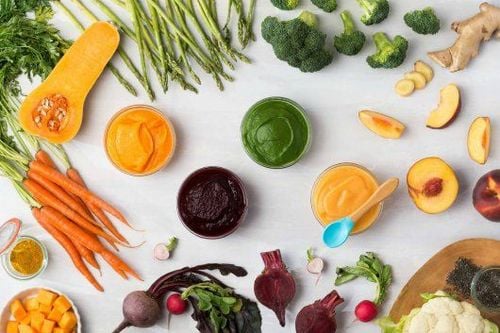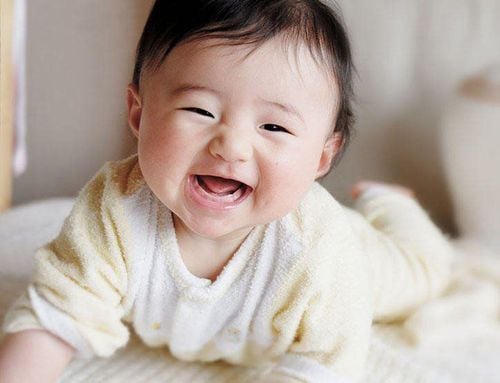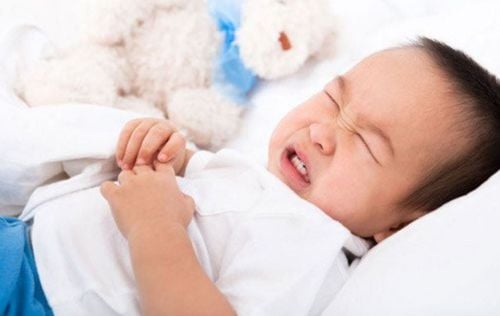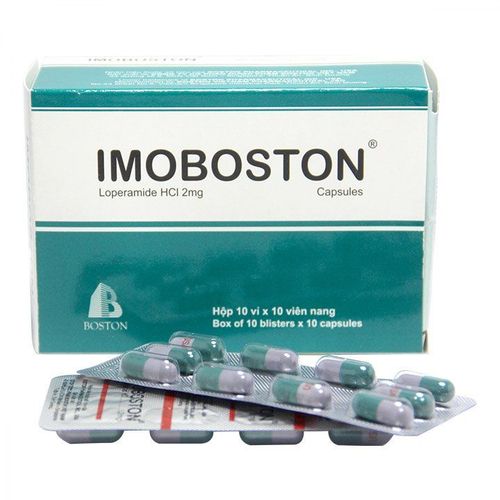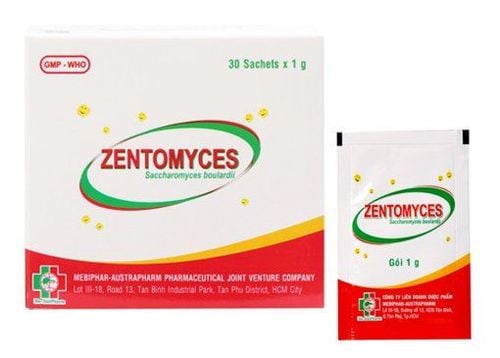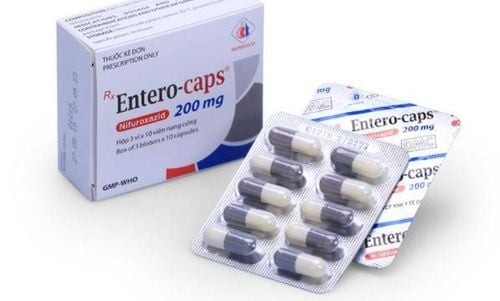This is an automatically translated article.
The article was professionally consulted by Specialist Doctor II Le Thanh Cam - Department of Pediatrics - Neonatology - Vinmec Danang International General Hospital. Uncle has 15 years of experience in diagnosis & treatment of pediatric diseases; She used to work at the Pediatric Department - Da Nang Hospital and Da Nang Center for Obstetrics and Gynecology. Her strength is diagnosis and treatment of pediatric diseases; resuscitation, pediatric emergency.
Diarrhea is the leading cause of morbidity and mortality in children, of which 80% of deaths occur in children under 2 years of age. The main cause of death is the loss of water and electrolytes from the body. Therefore, when your child has diarrhea, you need to rehydrate and electrolytes to avoid the risk of dehydration shock.
1. Things to know about diarrhea in children
Diarrhea is a condition when the child has loose or watery stools more than 3 times a day, the child has anorexia, poor feeding, abdominal pain, vomiting and crying a lot.
Causes and risk factors for diarrhea in children are:
Age: Diarrhea occurs in the first 2 years of life, is highest in children 6-11 months old, at this age the child begins to turn to diarrhea. When eating sam, passive antibodies from the mother are reduced, active antibodies are not present.

Tiêu chảy xảy ra trong 2 năm đầu của cuộc sống, cao nhất ở trẻ 6 - 11 tháng tuổi
Nutritional status: Malnourished children are prone to prolonged diarrhea, especially those with severe malnutrition. Immunocompromised status: Children with temporary immunodeficiency such as measles, chickenpox... Unreasonable eating habits such as: milk bottles are easily contaminated by intestinal bacteria, difficult to clean ; children are not breastfed in the first 6 months, especially colostrum right after birth; food contaminated by cooking, undercooked or overcooked; contaminated drinking water, drinking unboiled water; do not wash their hands after going out, do not wash their hands before preparing food for children. Virus: Rotavirus is the main cause of diarrhea in babies, accounting for 60%. At least one third of children under 2 years of age have an episode of rotavirus diarrhea. Other viruses such as Adenovirus, Norwalk virus also cause diarrhea. Caused by E.coli bacteria: 25% of acute diarrhea; Shigella bacillus is the causative agent of dysentery in 60% of dysentery episodes; salmonella does not cause typhoid; campylobacter jejuni; cholera Vibrio cholerae 01. Parasitic: Entamoeba histolytica; giardia lamblia; cryptosporidium
2. Preventing the risk of dehydration shock in children with diarrhea
2.1. Signs of dehydration in children with diarrhea Children with diarrhea often lose a lot of water due to loose stools and vomiting a lot. If parents do not pay attention to rehydration and electrolyte replacement for children with diarrhea, leading to severe dehydration, the child may become dehydrated, dehydrated shock. Diarrhea studies have shown that up to 70% of deaths are due to dehydration shock. The rest are caused by poisoning, pneumonia...
Recognizing signs of dehydration in children so that parents can take precautions in case of dehydration shock:
Mild dehydration in children with diarrhea: Children thirsty and asking for a drink. In children who can't speak yet, they will cry, only when they drink enough water will they stop crying. Moderate dehydration in children with diarrhea: In addition to thirst, children have dry eyes, dry lips, dry mouth, and wrinkled skin. In young children, the fontanel may drop, the eyes are sunken, sleeping with eyes closed, crying but no tears, drool... Severe dehydration in children with diarrhea: In addition to the above symptoms will see Children have special neurological signs such as fatigue, lethargy, sometimes struggling, lethargy, coma or convulsions. 2.2. Preventing the risk of dehydration shock in children with diarrhea To prevent children from becoming dehydrated due to frequent bowel movements, parents can rehydrate and electrolytes by giving children oresol, oresol II electrolyte solutions. :
Each large pack of oresol needs to be mixed with 1 liter of boiled water (it is not recommended to mix half a pack of oresol with half a liter of water) Each pack of oresol II or each capsule/pack of hydrite mix with 200ml of boiled water. Rehydration solution, electrolyte oresol has been mixed, if more than 24 hours do not drink, it must be discarded. The amount of oresol rehydration solution for children is calculated as follows:
Children under 2 years old: Give the child 50-100 ml of oresol after each bowel movement; Children 2 - 10 years old: Give children 100-200 ml of oresol after each bowel movement; Children over 10 years old: Give oresol to children until their thirst is gone after each bowel movement. If the child shows signs of diarrhea, dehydration or vomiting, cannot drink or the child has many bowel movements with high fever, green stools, sputum or blood, they must be hospitalized immediately to be examined, diagnosed and treated by a doctor. Avoid children with severe dehydration, electrolyte disturbances, and life-threatening acid-base problems.
3. Diet for children with diarrhea
Foods that should be used when children have diarrhea: rice (rice flour), potatoes, lean chicken, lean pork, soybean milk, cooking oil, carrots, sapodilla, bananas. Infants under 6 months of age who are breastfed should continue to breastfeed normally and increase the number of feedings. Children over 6 months of age who are breastfed, in addition to breast milk, need to feed them more times and little by little, foods rich in nutrients such as meat, eggs, fish, milk... and need to add a little oil and fat. to increase the energy of the diet.
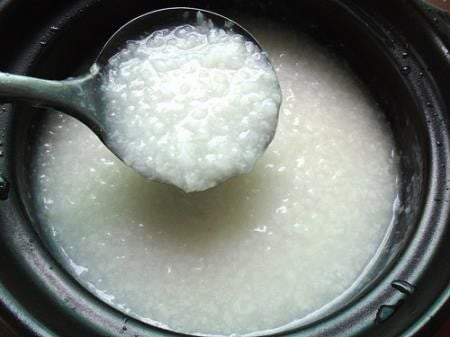
Trẻ bị tiêu chảy nên dùng các thực phẩm như: gạo (bột gạo), khoai tây, thịt gà nạc, thịt lợn nạc, sữa đậu tương, dầu ăn, cà rốt, hồng xiêm, chuối
Food should be soft, cooked thoroughly, cooked thinner than usual and given immediately after cooking to ensure hygiene and reduce the risk of superinfection. Give your child more ripe fruit or juice such as banana, orange, lemon, mango, papaya... to increase potassium. Do not use industrial soft drinks as they can increase diarrhea. Avoid foods that are high in fiber or low in nutrients such as raw vegetables, whole grains (corn, beans, etc.) that are difficult to digest. Avoid foods that are high in sugar because these foods can make diarrhea worse.
Regarding the amount of food, encourage your child to eat as much as possible. Young children feed 6 times/day or more. After the diarrhea is over, to help the child recover quickly and avoid malnutrition, it is necessary to give the child one more meal a day for two weeks. For children with persistent diarrhea, they must eat more than one meal a day and last for at least one month. If the child eats less or vomits, feed less and increase the number of meals compared to the menu.
From the 5th day, if the child has less diarrhea, gradually return to eating and drinking normally.
In addition, in order to prevent diseases that babies often get, parents should pay attention to nutrition to improve children's resistance. At the same time, add supporting foods containing lysine, essential micro-minerals and vitamins such as zinc, chromium, selenium, B vitamins,... snacks and less digestive problems.
Parents can learn more:
Why do you need to supplement Lysine for your baby?
The role of zinc - Guidelines for reasonable zinc supplementation
Please visit the website Vinmec.com regularly and update useful information to take care of your baby and family.





